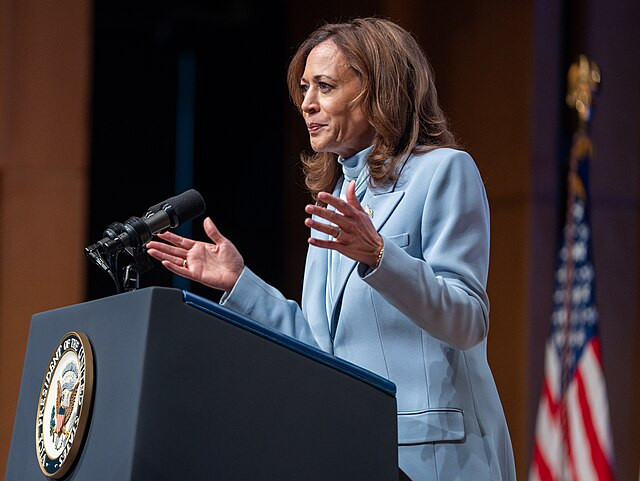Vice President Kamala Harris is reportedly considering a run for California governor in 2026, a move that would allow her to bypass a bruising 2028 presidential primary while immediately becoming a front-runner in her home state. Her possible candidacy has already begun reshaping the political landscape in California, drawing early Democratic maneuvering-and Republican enthusiasm.
Harris, 59, has yet to announce her plans but told a crowd in Orange County last month, "I'll see you out there. I'm not going anywhere." Advisers expect a decision before the end of summer. If she runs, Harris would enter a race already populated by prominent Democrats including former Representative Katie Porter, former Health and Human Services Secretary Xavier Becerra, and Lieutenant Governor Eleni Kounalakis.
California Governor Gavin Newsom, who is term-limited, said Harris would dominate the field "if she runs," but cautioned, to run for governor, "you have to have a burning 'Why?'"
Harris brings deep experience to the potential campaign, having served as San Francisco district attorney, California attorney general, U.S. senator, and vice president. Democratic strategist Roger Salazar said Harris "has got a leg up right now," pointing to her strong political network and prior statewide victories. But others question her electoral strength after losing the 2024 presidential race to Donald Trump.
"She's had her chance," said Adam Green, co-founder of the Progressive Change Campaign Committee. "Voters want authentic outsiders who will shake up our broken political system and challenge an economic status quo rigged for billionaires against working people."
Republicans, long locked out of California's top offices, are eager to seize on Harris's polarizing national profile. Conservative commentator Steve Hilton and Riverside County Sheriff Chad Bianco have already launched campaigns critical of Democratic rule. Hilton warned donors of a looming Democratic "coronation" and said Harris "embodies the failures of the past." Bianco added he would "jump for joy" at the chance to spotlight her criminal justice record.
Republican political consultant Dave Gilliard said Harris could energize GOP donors nationally: "It could attract some donors from around the country who might be interested in taking another pound of flesh." Elon Musk, who has criticized Harris in the past, is seen as a potential major donor if she enters the race.
California's open primary system-often referred to as the "jungle primary"-adds further unpredictability. All candidates, regardless of party, appear on the same ballot, and the top two vote-getters advance to the general election. Harris could face another Democrat in November, with sharp intraparty attacks reminiscent of a national primary contest.
While Republicans are unlikely to win the governorship, strategists argue that Harris's candidacy could provide long-shot contenders with exposure, momentum, and financial support. "She has a chance to be embarrassed even if she wins," said GOP strategist Kevin Spillane, who ran Harris's 2010 opponent's campaign. "It could be a pyrrhic victory."
Democratic insiders acknowledge the risk. "I don't think it's in any way guaranteed that she would win," said strategist Eric Jaye. "She's a highly polarizing figure."
Some within Harris's own party are weighing whether her return would be viewed as a triumphant homecoming-or a fallback after failed national ambitions. Former California Republican Party Chair Jessica Millan Patterson said Harris's presence in the race could help galvanize Republican donors who might otherwise view the governor's race as unwinnable for the GOP. She noted that Republicans have seen success raising money in past congressional races by positioning Democratic figures like Nancy Pelosi and Kevin McCarthy as high-profile targets.






